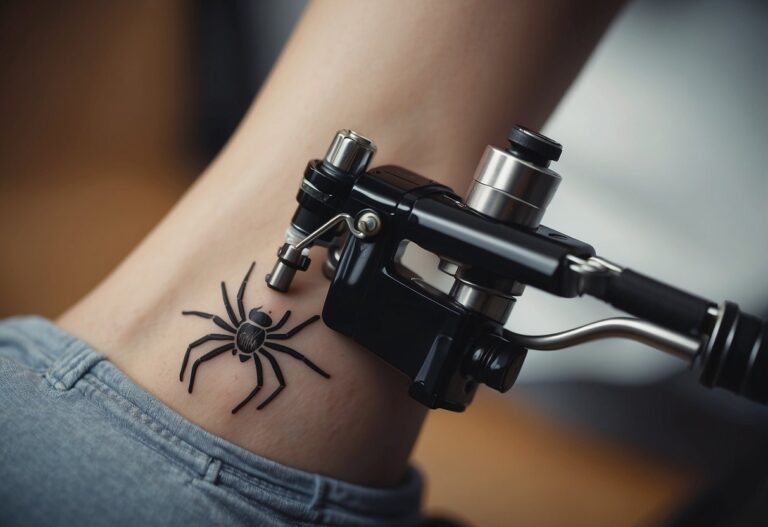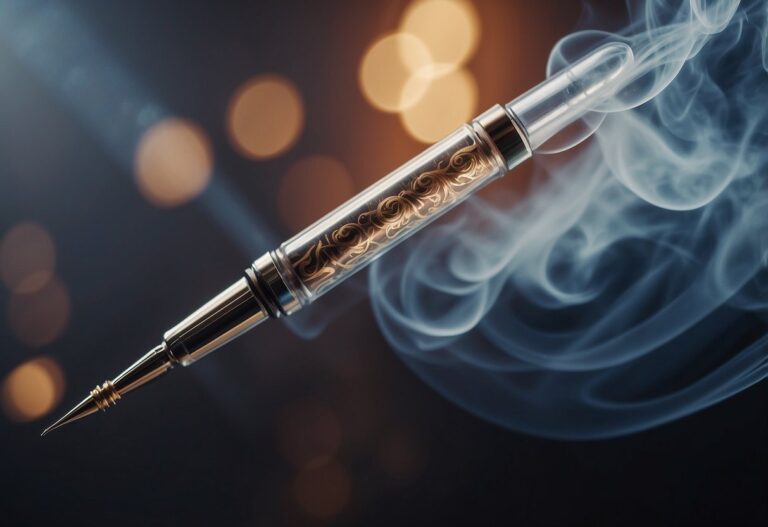Can Tattoos Cause Nerve Damage? Exploring Risks and Facts
Thinking about getting a tattoo can be exciting. You might have questions like, “Will it hurt?” or “Can tattoos cause nerve damage?” Yes, tattoos can potentially cause nerve damage, especially if not done correctly. But don’t worry, with proper care and a skilled artist, the risk is minimal.
When getting inked, a needle punctures your skin multiple times per minute. While this might sound scary, professional tattoo artists know how to manage the depth and angle to minimize issues. Picking an experienced artist can make all the difference in ensuring your body art is both beautiful and safe.
Of course, being informed is key. Knowing what to expect and how to take care of your new tattoo can prevent complications like infections or nerve irritation. Remember, the beauty and safety of your tattoo largely depend on your choices and hygiene practices.
Key Takeaways
- Tattoos can cause nerve damage if done incorrectly.
- Choosing an experienced tattoo artist reduces risks.
- Proper aftercare ensures your tattoo heals safely.
Understanding Tattoos and Nerve Damage
When getting a tattoo, it’s normal to wonder about potential risks, especially nerve damage. This section explores what happens during the tattooing process, the potential for nerve damage, and how to identify risk factors and symptoms.
What Happens During Tattooing?
Tattooing involves piercing the skin with needles to deposit ink. A tattoo machine moves the needle up and down at high speeds, between 50 to 3,000 times per minute. These needles penetrate the dermal layer of your skin, which can reach nerves located there.
During this process, you might feel pain. The intensity depends on where you’re getting the tattoo and your pain tolerance. Nerves send signals to your brain, making you feel the sensation. Infections can also happen if the equipment isn’t sterilized. Proper aftercare is crucial to prevent complications.
Potential Nerve Damage from Tattooing
Nerve damage is rare but possible if the needle goes too deep. When this happens, it can harm the sensory nerves, causing issues like numbness or oversensitivity in the tattooed area. Sometimes, this damage results in tingling or shooting pains.
Experienced tattoo artists understand their tools and techniques to minimize these risks. They know how to control the depth of the needle. Choose a skilled artist to reduce your chances of nerve injury. Follow aftercare guidelines to help nerves heal and prevent inflammation.
Identifying Risk Factors and Symptoms
Certain factors can increase the risk of nerve damage from tattoos. Tattoo placement is critical; areas with more nerves, like hands or feet, are more sensitive. Having pre-existing nerve conditions may also heighten your risk.
Symptoms of nerve damage include persistent numbness, tingling, or sharp pains in the tattooed area. If you notice severe or unusual symptoms, it’s essential to seek medical attention. This helps ensure that you don’t have serious complications.
By being aware of these risks and symptoms, you can make informed decisions about getting a tattoo. Always prioritize safety and choose reputable artists to help you achieve the best outcome.
Tattoo Safety and Best Practices
When getting a tattoo, it’s important to consider the skill of the tattoo artist, the cleanliness of the studio, and proper aftercare. These steps help reduce the risk of complications like infections or nerve damage.
Choosing the Right Tattoo Artist and Studio
Picking a reputable tattoo artist and studio is your first step toward a safe tattoo experience. Look for a certified artist with positive reviews and a clean, professional studio.
Ensure the artist uses sterilized equipment and fresh needles. Tools should come from sealed packages to avoid bacteria and other contaminants. Check the studio’s health inspection reports, which should be publicly available. Many high-quality studios proudly display their certifications.
Ask questions! A good artist will explain their process, equipment, and aftercare recommendations. Don’t be shy about walking away if anything feels off.
Prevention and Management of Tattoo Complications
To minimize the risks associated with tattoos, follow these best practices:
- Before your appointment, make sure you’re well-hydrated and have eaten properly.
- Consider using numbing cream if you’re worried about pain.
- Aftercare is crucial: keep the area clean and apply any recommended moisturizer to promote healing.
- Watch for signs of infection like redness, itchiness, or heat around the tattooed area.
Be aware of the potential for allergic reactions to tattoo inks, especially red ink which is more likely to cause skin reactions.
Avoid touching your fresh tattoo with dirty hands, and steer clear of swimming pools and hot tubs to prevent exposure to bacteria. If your tattoo shows signs of an adverse reaction, contact a dermatologist.
When to Seek Medical Assistance
Recognizing when to seek medical assistance can prevent minor issues from becoming serious health problems. Seek help if you notice:
- Persistent pain or redness beyond a few days
- Signs of infection, like pus or fever
- Numbness or tingling near the tattoo, which could indicate nerve involvement
- Abnormal scarring or development of keloids
These symptoms could suggest more serious issues like hepatitis or infections caused by mycobacteria. A trained healthcare professional can guide you through the appropriate treatments.
Taking these steps ensures that your tattoo experience is safe and enjoyable while minimizing the chances of complications.







